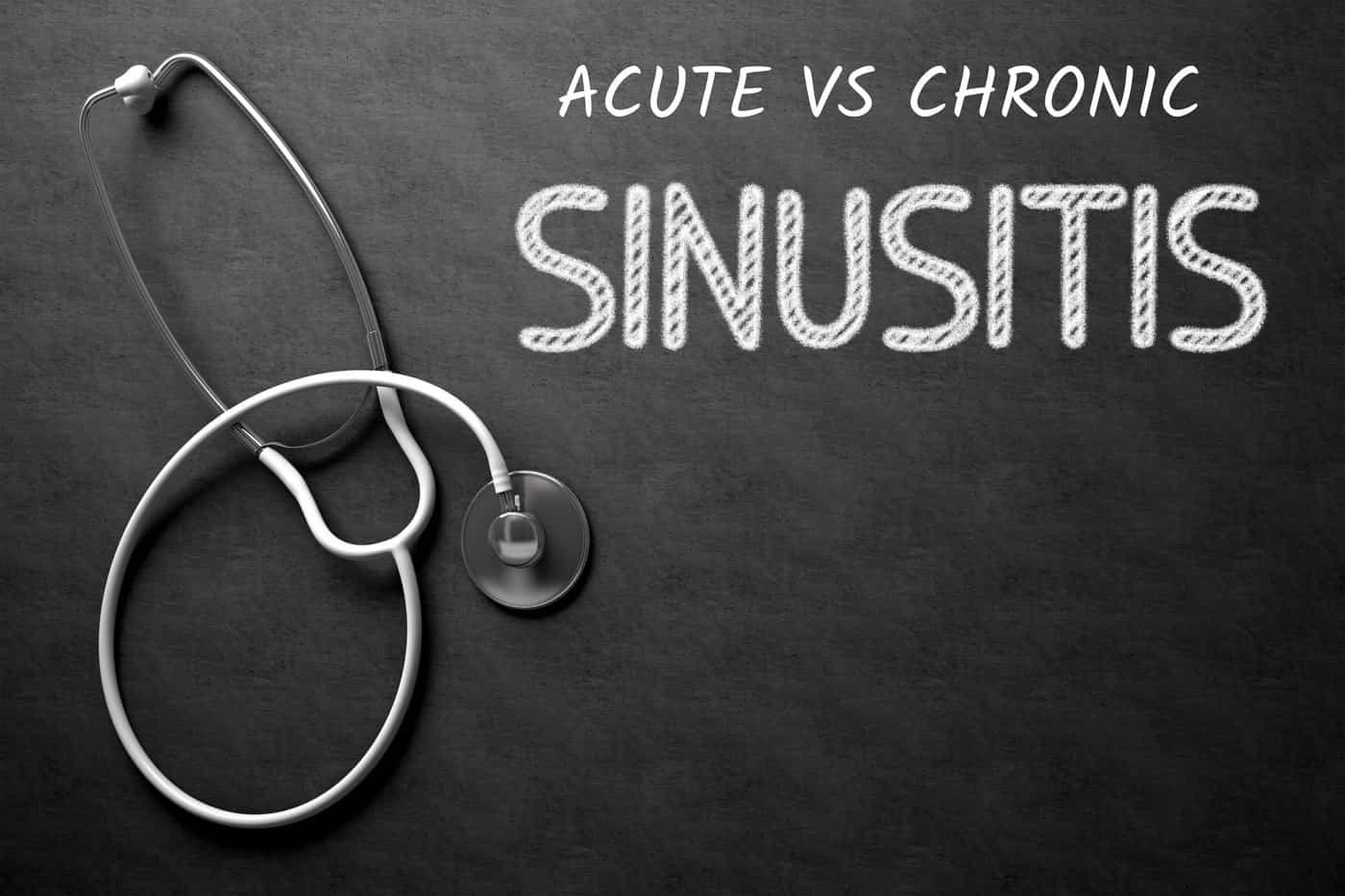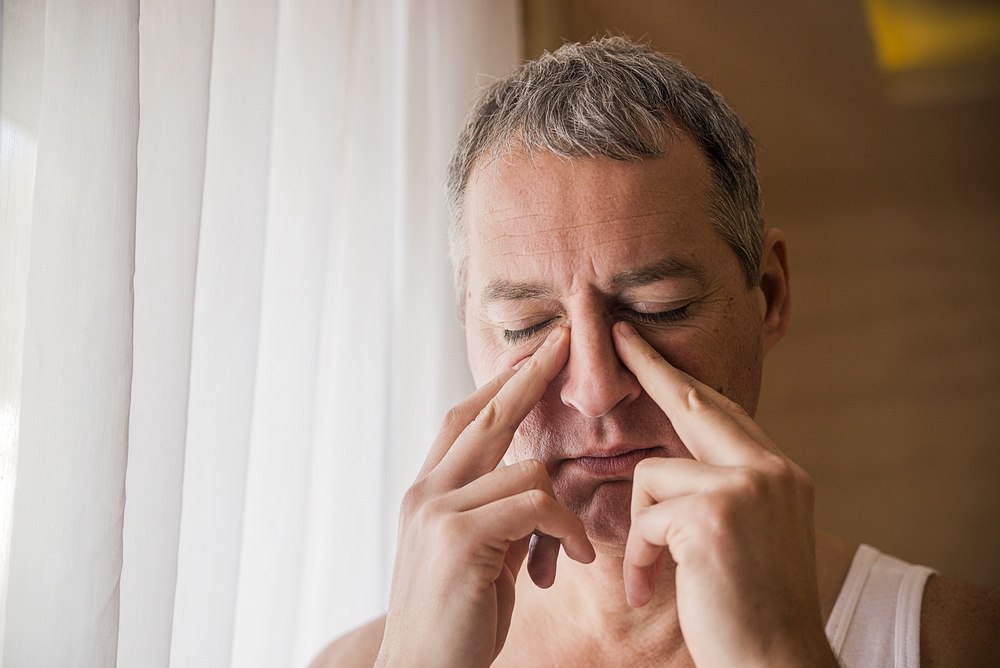Acute vs Chronic Sinusitis: Treatment Options
May 19th, 2017 | 4 min. read


Are you experiencing a cold that doesn't seem to want to go away? If it lasts over 10 days or seems to be getting worse even after you thought it was getting better, it could be a sign of sinusitis. This is a condition where inflammation or infection affects your sinuses.
Sinusitis is a common disease that affects around 30 million people in the United States each year. There are two forms of sinusitis: acute and chronic.
get your acute or chronic sinusitis evaluated and treated today!
You can get an appointment for your sinusitis as early as today at any one of our 10 locations throughout Houston, Texas.
Difference Between Acute and Chronic Sinusitis
You can tell the difference between the two forms of sinusitis typically by its duration and whether it's accompanied by infection or inflammation.
Acute Sinusitis
If your sinusitis symptoms last for less than 4 weeks, it's acute. It usually starts with a cold with symptoms disappearing between a week to 10 days. In some cases, a bacterial infection can develop.
Symptoms of Acute Sinusitis
You could experience symptoms such as:
-
Discharge that's yellow or greenish draining from your nose or the back of your throat.
-
Congestion or nasal obstruction that makes it difficult to breathe through your nose.
-
Swelling, tenderness, pressure and pain around your eyes, forehead or nose that gets worse when you bend over.
-
Headache
-
Ear pressure
-
Fatigue
-
A cough that could worsen at night
-
Fever
-
Upper jaw or teeth ache
-
Bad breath
-
Reduced sense of taste and smell
In most cases, it's not necessary to see a doctor for acute sinusitis as the condition usually improves itself over time. If you’re experiencing symptoms that are getting worse or aren't improving, contact your doctor. It could be a sign of chronic sinusitis.
Chronic Sinusitis
This condition is often diagnosed once your symptoms have gone on for 12 weeks or more and medical treatment has failed. This type of sinusitis is typically not caused by longstanding infection, but rather prolonged inflammation.
Symptoms of Chronic Sinusitis
For you to have chronic sinusitis, you need to be experiencing at least two to four of the primary symptoms above along with nasal inflammation.
Treatments for Both Types of Sinusitis
Start off with self-help remedies (under your doctor’s advice) to see if they help ease your symptoms followed by prescribed treatment by your doctor if they don't. Chronic sinusitis typically takes longer to treat than acute sinusitis and requires you to be seen and treated by a physician.
Acute Sinusitis Treatment Options
With this type of sinusitis, self-care techniques tend to be all you need. These include:
- Rest . Get plenty of rest so your body can fight off the infection and you can recover faster.
- Drink fluids. Fluids like water or juice can help thin out mucus secretions causing drainage. Don't drink beverages that contain alcohol or caffeine since they can dehydrate you. Also, when you drink alcohol, it can make the swelling in your nose and sinus lining to get worse.
- Keep your sinus cavities moist. Pour some hot water in a bowl and drape a towel over your head breathing in the vapor. Take a hot shower and breathe in the moist, warm air. Both of these remedies can help the mucus drain and ease pain.
- Apply a warm compress on your face. Applying a damp, warm towel to your eyes, nose and cheeks can help ease facial pain.
- Rinse out your nasal passages. Use a neti pot or other specially designed sinus rinse squeeze bottle to clear out your sinuses. This is known as nasal lavage.
If self-care methods aren't working, your doctor may advise you to use other types of treatments that can help, including:
-
Saline Nasal Spray : Spray the saline into your nose daily (3 times) to clear your nasal passages.
-
Nasal Corticosteroids: This helps to treat and prevent inflammation. Different types of nasal corticosteroids may include:
-
Rhinocort (budesonide)
-
Veramyst, Flonase (fluticasone)
-
Nasonex (mometasone)
-
AQ, Beconase, Qnasl (beclomethasone)
-
-
Decongestants: These come in both prescription and over-the-counter (OTC) nasal sprays, liquids and tablets and are only to be used for a few days or you may experience rebound congestion (more severe).
-
OTC Pain Relievers: These may include acetaminophen (Tylenol), aspirin (not children) or ibuprofen (Motrin IB, Advil)
In most cases, antibiotics aren't required since acute sinusitis usually clears up on its own without it, even if it's bacterial. Before prescribing you antibiotics, your doctor will watch to see if the infection gets worse or if your symptoms persist before he recommends them.
Chronic Sinusitis Treatment Options
Since inflammation causes chronic sinusitis and not infection, the treatments are prescribed for controlling the inflammation. The main treatments used are nasal steroid sprays and saltwater nasal irrigation. Your doctor will have to look at other factors that can be contributing to your chronic sinusitis and treat them as well. These factors may include asthma, allergies, nasal polyps and issue with your body's ability to fight infections.
Self-care treatments for chronic sinusitis are the same as acute sinusitis. If these don't work, your doctor may need to prescribe other treatments such as:
-
Saline Nasal Irrigation: These come in solutions or sprays and rinse away allergies and irritants and reduce drainage.
-
Nasal corticosteroids: These come in sprays to treat and prevent inflammation and include the same types as mentioned above. Your doctor may prescribe a solution for you to rinse out your nose with that includes a few drops of Pulmicort Respules (budesonide) mixed with saline if the sprays don't work.
-
Injected or oral corticosteroids: These are medications used with severe sinusitis to relieve inflammation, particularly if you have nasal polyps as well. When used long-term, however, they can cause serious side effects, which is why they're only used for treating severe symptoms.
-
Aspirin desensitization treatment: This is given to you if you have had reactions when taking aspirin that caused your sinusitis. You're given large doses of aspirin gradually under medical supervision to help increase your tolerance.
-
Antibiotics: This type of medication is sometimes needed when you have chronic sinusitis with associated bacterial infection. If no underlying infection can be ruled out, you'll be prescribed antibiotics with other medicines.
-
Balloon sinuplasty surgery: This type of surgery is safe and effective and minimally invasive. It's used by qualified doctors for treating patients with chronic sinusitis (or if your acute
sinusitis is recurrent) and you haven't responded to any other therapies and medications. Studies have shown this surgery to be durable, effective, and last for up to 2 years after your procedure. -
Invasive Conventional Surgery: While Endoscopy is used in most chronic sinusitis cases, this type of surgery is used which involves scalpel techniques for removing the infected areas. You may need this surgery if you have extremely severe frontal sinusitis, you have acute ethmoid sinusitis with pus breaking through your sinuses, threatening your eye, you have cancer present in your sinuses or you have invasive fungal sinusitis
If you have facial pressure, nasal congestion, thick nasal discharge, and cough, you may have sinusitis. If it lasts longer than four weeks, it's time to see your doctor.
Your doctor will sit down with you and discuss a treatment plan that is most effective for your individual case. They might start you off with self-care methods and see if this can effectively treat your sinusitis. If not, you may require stronger types of medication and therapy. Either way, you don’t have to suffer from the uncomfortable symptoms of sinusitis.
Dr. Suchanova is a Diplomate of the American Board of Otolaryngology Head and Neck Surgery and a Fellow of the American Academy of Otolaryngology Head and Neck Surgery. She is fluent in English, Czech, Slovak and conversational in Spanish.


